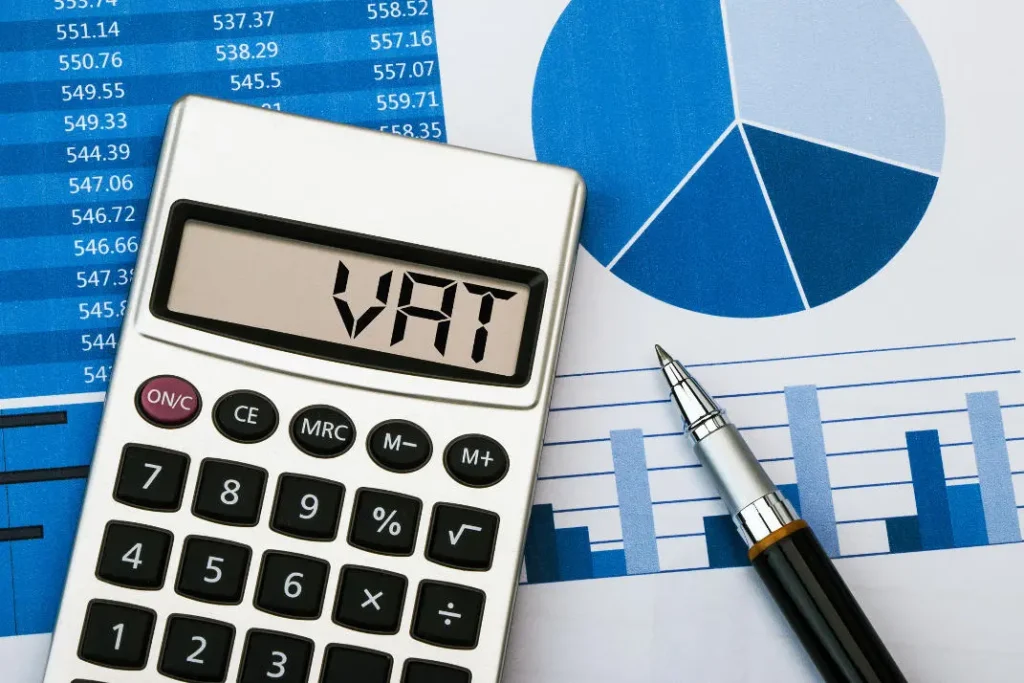Résumé : Résumé : En Thaïlande, l’impôt sur les successions s’applique aux patrimoines dont la valeur dépasse 100 millions de bahts, conformément à la loi sur les droits de succession de 2015 (Succession Tax Act B.E. 2558). Le taux est de 5 % pour les parents et enfants, et de 10 % pour les autres héritiers. L’impôt est calculé sur la valeur marchande des biens transmis (terrains, actions, comptes bancaires, etc.). Les conjoints sont totalement exonérés, et les successions inférieures au seuil ou reçues avant 2015 ne sont pas imposées.
Les ressortissants thaïlandais et les étrangers qui héritent de biens situés en Thaïlande peuvent être soumis à l’impôt sur les successions, selon leur résidence fiscale et la localisation des actifs. La déclaration de succession doit être déposée dans un délai de 150 jours à compter de la réception de l’héritage. En cas de retard ou d’erreur, des pénalités, surtaxes et amendes peuvent être appliquées. Une bonne compréhension de la législation thaïlandaise, des exonérations existantes et d’une planification successorale adaptée permet de réduire significativement la charge fiscale et, dans certains cas, d’éviter l’imposition de 10 % sur les successions.
Introduction
L’impôt sur les successions constitue un élément essentiel pour toute personne détenant des actifs en Thaïlande ou héritant de biens situés dans le pays. Que vous soyez ressortissant thaïlandais, résident expatrié ou étranger bénéficiaire d’un héritage en Thaïlande, il est important de bien comprendre les obligations fiscales afin de planifier efficacement votre succession et d’optimiser votre situation patrimoniale.
Pour garantir la conformité, vous pouvez vous faire assister par un expert-comptable en Thaïlande.
Introduit par la loi sur les droits de succession B.E. 2558de 2015 (Inheritance Tax Act B.E. 2558 (2015), l’impôt sur les successions en Thaïlande a pour objectif d’assurer une répartition plus équitable des richesses. Il s’applique aux successions dont la valeur dépasse 100 millions de bahts (environ 3 millions de dollars américains).
Ce guide aborde les éléments essentiels de l’impôt sur les successions en Thaïlande, en détaillant les personnes concernées, le calcul de l’impôt, les exonérations applicables, ainsi que les sanctions prévues en cas de déclaration tardive ou inexacte.
Points clés
- En Thaïlande, les droits de succession s’élèvent à 5 % pour les ascendants et descendants directs, et à 10 % pour les autres héritiers, lorsque la valeur de la succession dépasse 100 millions de bahts (environ 3 millions de dollars américains).
- Les ressortissants thaïlandais, les résidents étrangers, les héritiers étrangers de biens situés en Thaïlande et les personnes morales thaïlandaises sont soumis à l’impôt sur les successions.
- Le calcul est basé sur la valeur marchande des actifs au moment de l'héritage, déduction faite des dettes.
- Les actifs soumis à l’impôt sur les successions incluent les terrains et bâtiments, les titres, les dépôts en espèces, les véhicules et certains actifs financiers.
- Des exonérations s’appliquent pour les héritages entre conjoints, les successions inférieures à 100 millions de bahts, les décès survenus avant 2015, ainsi que les dons à des organismes publics ou internationaux.
- La déclaration de succession doit être effectuée dans un délai de 150 jours à compter de la réception de l’héritage.
Qu’est-ce que l’impôt sur les successions en Thaïlande ?
L’impôt sur les successions en Thaïlande s’applique aux héritiers recevant des biens d’une valeur supérieure à 100 millions de bahts. Instauré par la loi sur les droits de succession B.E. 2558 (2015), il vise à assurer une répartition plus équitable des richesses et à renforcer les recettes de l’État.
Cet impôt s’applique aux ressortissants thaïlandais, à certains étrangers, ainsi qu’aux personnes morales enregistrées en vertu du droit thaïlandais. Le montant de l’impôt sur les successions à payer dépend de la localisation des biens hérités, ainsi que du statut de résidence ou de nationalité du bénéficiaire.
Qui est concerné par l'impôt sur les successions ?
Selon l'article 11 de la loi sur les droits de succession, certaines personnes sont légalement tenues de s’acquitter des droits de succession lorsqu’elles reçoivent des biens. Cela concerne notamment toutes les personnes de nationalité thaïlandaise, quel que soit leur lieu de résidence. Les droits de succession s’appliquent également aux catégories suivantes :
Résidents étrangers en Thaïlande
Les ressortissants étrangers disposant d’une résidence légale en Thaïlande, telle que définie par la loi thaïlandaise sur l’immigration, sont également soumis aux droits de succession sur les biens qu’ils héritent.
Bénéficiaires étrangers d’actifs situés en Thaïlande
Même si un bénéficiaire ne réside pas en Thaïlande, il reste redevable de l’impôt sur les successions si les biens hérités se trouvent sur le territoire thaïlandais.
Personnes morales
Les personnes morales enregistrées ou constituées selon le droit thaïlandais sont également soumises à l’impôt sur les successions en Thaïlande. De plus, toute personne morale dont les actionnaires thaïlandais détiennent plus de 50 % du capital social libéré est tenue de s’acquitter de cet impôt lorsqu’elle reçoit des biens hérités.
Les entreprises enregistrées sous le BOI Thaïlande ou les sociétés ayant des activités d’investissement peuvent également nécessiter une planification fiscale adaptée, souvent réalisée avec un comptable en Thaïlande.

Quels sont les taux d’imposition sur les successions en Thaïlande ?
En Thaïlande, les successions dont la valeur dépasse 100 millions de bahts (environ 3 millions de dollars américains) sont généralement soumises à un impôt sur les successions de 10 %. Un taux réduit de 5 % s’applique toutefois lorsque les bénéficiaires sont des descendants directs (enfants ou petits-enfants) ou des ascendants directs (parents du défunt).
Il convient de noter que les héritages reçus par un bénéficiaire désigné dans un testament ne sont pas soumis à l’impôt sur le revenu des personnes physiques en Thaïlande.
Comment calculer la valeur d’une succession ?
Pour déterminer le montant de l’impôt sur les successions en Thaïlande, il convient d’évaluer d’abord si la valeur totale des biens hérités dépasse 100 millions de bahts thaïlandais.
Les biens hérités soumis à l'impôt sur les successions comprennent :
- Les biens immobiliers
- Les titres conformément à la loi sur les valeurs mobilières et les bourses
- Les dépôts bancaires ou autres formes de richesse, lorsque l'héritier a le droit de les retirer d'un établissement financier ou de les réclamer à la personne qui détient le dépôt
- Les véhicules immatriculés
- Actifs financiers à prescrire par arrêté royal
En vertu de l'article 15 de la loi sur les droits de succession, la valeur des biens hérités est calculée sur la base de leur valeur marchande au moment de leur réception.
Pour les biens immobiliers, l’évaluation repose sur la valeur officielle utilisée pour le calcul des droits d’enregistrement selon le Code foncier, après déduction des droits de tiers conformément aux règlements ministériels. Les biens immobiliers comprennent les terrains, les bâtiments, ainsi que tous les équipements fixes ou droits réels attachés au terrain, tels que définis par le Code civil et commercial.
Pour les titres cotés en Bourse de Thaïlande, leur valeur est déterminée sur la base du cours de clôture du marché à la date de réception de l’héritage.
Les évaluations précises doivent souvent être vérifiées par un expert-comptable en Thaïlande, notamment pour les successions comprenant des actions, des biens immobiliers ou des cryptomonnaies.
Comment calculer le montant des droits de succession dus ?
Le montant imposable est déterminé en calculant la valeur nette de la succession, c’est-à-dire en déduisant les dettes ou passifs en cours de la valeur totale des biens hérités.
Par exemple, si la valeur de la succession est de 150 millions de THB, les droits de succession en Thaïlande seraient calculés comme suit :
Droits dus pour les descendants directs
- Déterminer le montant imposable : Pour une succession de 150 millions de THB, le montant imposable au-delà du seuil d’exonération de 100 millions de THB est de 50 millions de THB.
- Identifier le taux d’imposition applicable : Pour les descendants directs du défunt, le taux d’imposition sur les droits de succession est de 5 %.
- Calculer les droits de succession dus : Dans ce cas, les droits de succession seraient de 2,5 millions de THB (5 % de 50 millions).
Impôt dû pour les autres bénéficiaires
- Déterminer le montant imposable : Pour une succession de 150 millions de THB, le montant imposable au-delà du seuil d’exonération de 100 millions de THB est de 50 millions de THB.
- Identifier le taux d’imposition applicable : Pour les bénéficiaires autres que les descendants directs, le taux d’imposition sur les droits de succession est de 10 %.
- Calculer l’impôt sur les successions dû : Dans ce scénario, l’impôt sur les successions serait de 5 millions de THB (10 % de 50 millions).
Paiement de l’impôt sur les successions
Une fois l’héritage reçu, les bénéficiaires doivent remplir une déclaration d’impôt sur les successions et s’acquitter de tout impôt dû dans un délai de 150 jours.
Existe-t-il des exonérations fiscales sur les successions en Thaïlande ?
La législation thaïlandaise prévoit plusieurs exonérations qui peuvent réduire, voire annuler, l’obligation fiscale sur les successions.
Voici quelques exemples d’exonérations fiscales sur les successions :
Les biens hérités par des personnes ou des organisations en vertu d’accords des Nations Unies, du droit international ou d’accords bilatéraux entre la Thaïlande et d’autres pays sont exonérés de droits de succession.
- Les successions dont la valeur est inférieure à 100 millions de THB (environ 3 millions de dollars américains) sont exonérées de droits de succession.
- Tous les biens transmis directement au conjoint légal du défunt bénéficient d’une exonération totale de droits de succession.
- Les successions des personnes décédées avant l’entrée en vigueur de la loi sur les droits de succession en 2015 ne sont pas soumises à l’impôt.
- Les biens ou fonds légués à des organismes gouvernementaux, établissements d’enseignement, organisations religieuses ou autres entités à vocation publique sont exonérés d’impôt.
Quelles sont les sanctions en cas de non-paiement des droits de succession ?
La Thaïlande prévoit des sanctions strictes en cas de non-déclaration ou de déclaration incorrecte des droits de succession.
Sanctions en cas de retard de paiement
Si un bénéficiaire dépose sa déclaration et paie les droits après la date limite, il s’expose à une surtaxe correspondant au double du montant des droits dus, augmentée de 1,5 % par mois à compter de l’expiration du délai de déclaration.
Sanctions en cas de déclaration incomplète ou fausse
Le dépôt d’une déclaration incomplète ou fausse entraîne une amende équivalente à 50 % des droits exigibles. Si aucune déclaration n’est déposée, le bénéficiaire peut être sanctionné par une amende pouvant atteindre 500 000 THB.
Non-respect des autorités
Le fait de ne pas se conformer à une convocation, à une ordonnance ou à des interrogations émis par un agent chargé de l’évaluation ou par le président de la commission d’appel peut entraîner une peine d’emprisonnement pouvant aller jusqu’à un mois, une amende pouvant atteindre 20 000 THB, ou les deux.
Sanctions pour dissimulation ou obstruction
La destruction, la suppression, la dissimulation ou le transfert de biens saisis est passible d’une peine d’emprisonnement pouvant aller jusqu’à deux ans et d’une amende pouvant atteindre 400 000 THB.
Sanctions pour fraude ou fausse déclaration
Toute fausse déclaration intentionnelle, présentation de faux éléments de preuve ou fourniture de réponses trompeuses dans le but d’échapper à l’impôt est passible d’une peine d’emprisonnement pouvant aller jusqu’à un an, d’une amende pouvant atteindre 200 000 THB, ou des deux.
Clause de non-responsabilité
Veuillez noter que cet article est fourni à titre d'information uniquement et ne constitue pas un conseil juridique ou fiscal.





